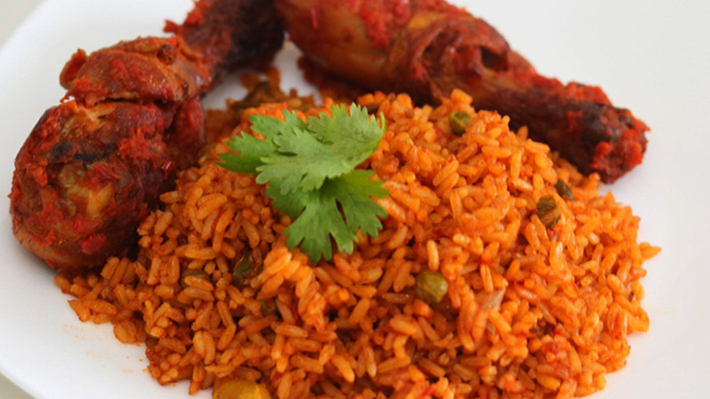Cost of making jollof rice rose 75.4 per cent in four years — Report

The cost of making Jollof rice has risen significantly in the last four years, a survey released Monday found.
SB Morgen, a strategic intelligence analysis firm, said in its third-quarter 2020 Jollof Index that it will cost a Nigerian household N7,167 to make a pot of jollof rice in September 2020.
This represents a 75.4 per cent increase from July 2016 when it cost an average N4,087 to make the fragrant delicacy for a family of six, SBM found.
SBM Intelligence, which explains food inflation using a pot of jollof rice, disclosed that a nationwide sampling of ingredients for the staple food is done on a monthly basis in 13 markets across the six geopolitical zones.
“These prices are averaged up for a pot of jollof rice for a family of five or six people in each market, and the figures derived are used as a proxy for food inflation across the country”, it says.
The survey also found that households in Awka — aided by subsistence farming — paid the least amount to make a pot of Jollof rice for a family of six within the months under review.
“A pot of Jollof rice for a family of six is cheapest in Awka and most expensive in Wuse II. While that pot goes for N5,620 in Awka, the same will go for N9600 in Wuse II.”
SBM identified inflation, high cost of transportation occasioned by the hike in petrol prices and increased extortion by security agents along transport routes as drivers of this increase.
Nigeria’s inflation rate soared to 13.71 per cent in September 2020, the highest ever recorded since March 2018.
Food inflation stood at 1.88 per cent in September 2020 — an increase from 1.67 per cent in August, a report by the National Bureau of Statistics stated.
Peoples Gazette learnt that food items such as bread and cereals, fish, potatoes, yam & other tubers, meat, oil and fats and fruits recorded the highest increase.
The NBS also stated that while 68 per cent of households in the country experienced food insecurity in August 2020, 51.3 per cent of Nigerians have borrowed to buy food since March 2020.
We have recently deactivated our website's comment provider in favour of other channels of distribution and commentary. We encourage you to join the conversation on our stories via our Facebook, Twitter and other social media pages.
More from Peoples Gazette

Politics
Katsina youths pledge to deliver over 2 million votes to Atiku
“Katsina State is Atiku’s political base because it is his second home.”

States
Osun: Police arrest four suspects for allegedly killing woman for money ritual
Ms Opalola said the suspect’s confession led to the arrest of the three other suspects.

States
Customs seized N126.2 million smuggled goods in Kebbi in two months: Official
“Our operations so far have yielded positive outcomes leading to several seizures of items within the period under review.”

Education
Plateau varsity suspends exams after killing of 200-level student by gunmen
Mr Ayuba said that the university had also declared a two-day mourning in honour of the slain student.

Lagos
Lagos govt. nabs ten fake enforcement officials
“The arrest was made in response to complaints registered at the ministry by concerned citizens,” he said.

Agriculture
Netherlands, Nigeria collaborate to enhance food security
One of the key initiatives is the Netherlands-Nigeria Seed Partnership, aimed at improving access to quality seeds and enhancing crop productivity.

Economy
Ogun government begins enrolment of 80,000 beneficiaries for FG’s cash transfer
She disclosed that over 80,000 households would benefit from the exercise in 192 wards and 2,681 communities across Ogun.








